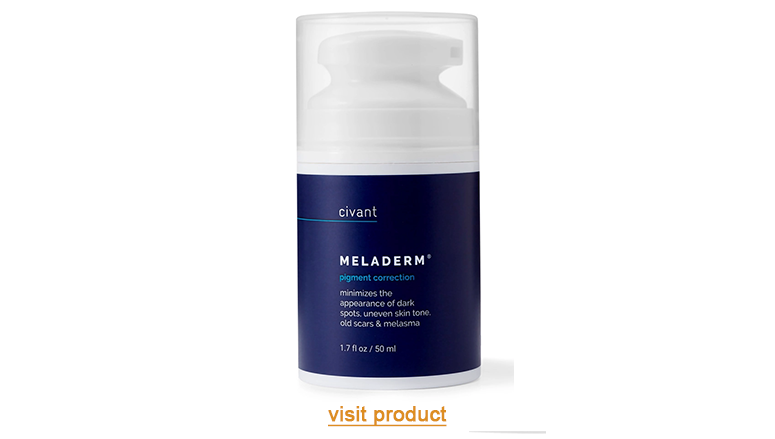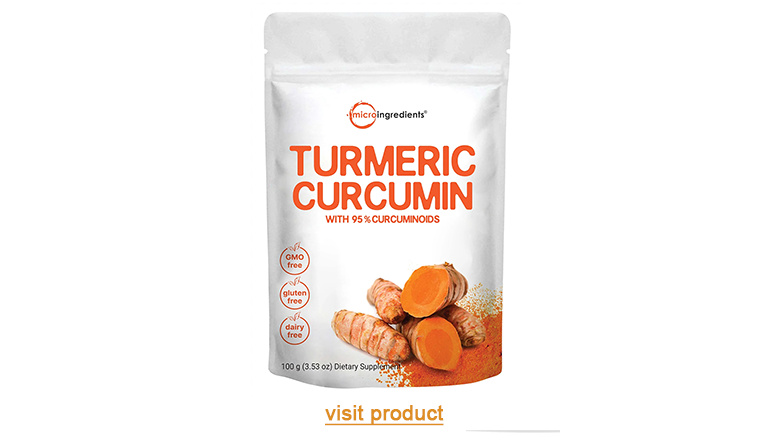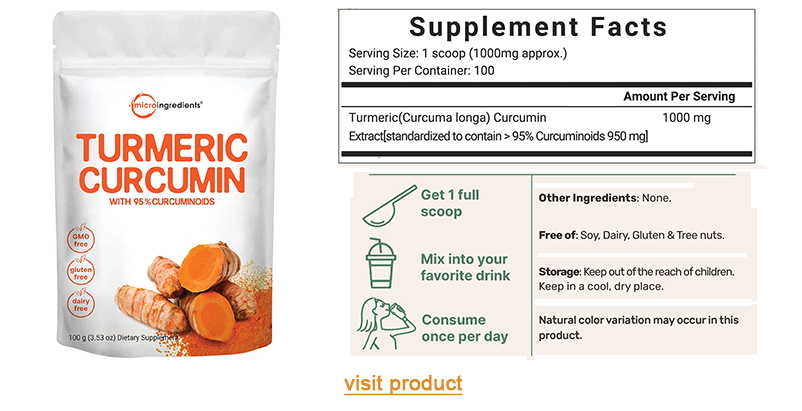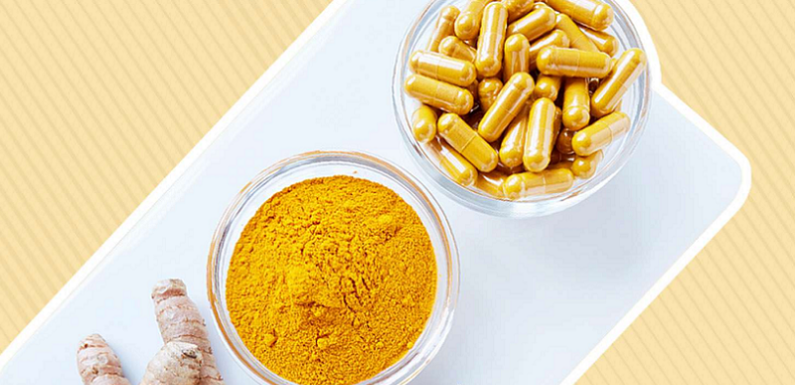
Is the remedy to vibrant skin stashed in your spice cabinet? One of the most noted skincare products currently is turmeric, a golden-brown spice that not only tastes delicious, it will also deliver many major skin perks — such as skin lightening.
What Is Turmeric (Curcumin)?
Turmeric (sometimes called Curcuma Longa) is a plant related to ginger, and is routinely used as a spice all over the world — but specifically in South Asia. It is well known by its vivid golden color. This spice has been in use for more than 2200 years in Ayurvedic skincare and as a preventive healthcare supplement. Ayurveda is the holistic technique of medicine that got its start in India.
The golden color of turmeric stems from the active component curcumin. Curcumin is an efficient anti-inflammatory (hinders inflammation), antimicrobial (slows the growth of microorganisms), antineoplastic (obstructs the production of growths that could grow into cancer) and antioxidant (substances that combat destructive free radicals). So yes, curcumin is kind of a wonderful thing!
Turmeric (Curcumin) for the Treatment of Hyperpigmentation
Hyperpigmentation is a regularly occurring disorder that renders certain places of the skin darker than others. “Hyper” denotes greater, and “pigment” denotes color. Hyperpigmentation will surface as brown, black, or gray patches or spots. The patches are sometimes termed age spots or liver spots.
Skin obtains its color from a component named melanin, which is a pigment produced by skin cells. When such skin cells are not healthy or weakened, they has the potential to make surplus melanin. The melanin can sometimes clump, resulting in that area to appear darker. As a consequence a prevalent cause of hyperpigmentation is an excessive output of melanin.
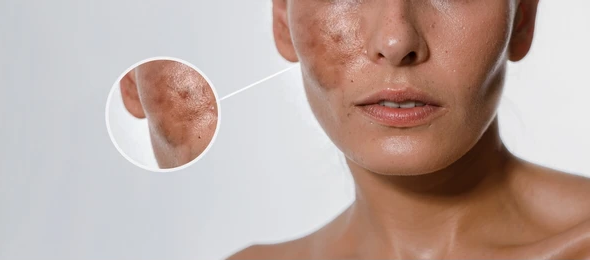
Much research has revealed that turmeric has the capability to address hyperpigmentation. Mainly it’s the curcumin in turmeric that was the crucial factor in these studies to inhibit the behavior of tyrosinase, an enzyme essential for melanin production. Though this consideration hasn’t yet been investigated in clinical studies, it leans in the direction of the conclusion that scheduled topical applications of curcumin is likely to over time lighten skin. Over time, as dark skin cells naturally exfoliate, they are going to be replaced by cells that typify the normal skin appearance as confirmed at Glorious Fab.
Turmeric for Treating Melasma
Quite a few assorted circumstances are able to vary the production of melanin, stimulating hyperpigmentation. Melasma is a very conventional cause of hyperpigmentation. Melasma is a skin problem that results in patches and areas, often on the face, that are darker than ones natural skin color. While this problem is completely benign, it makes some people become self-conscious.
Melasma is a skin issue characterized by spots, or blue-gray or brown patches, usually on the nose, forehead, and cheeks. Seeing as hormonal variations throughout pregnancy can be the source of melasma, it’s quite often regarded as the “mask of pregnancy.”
Melasma is a relatively basic skin affliction, in particular with pregnant women. Anywhere around 15% to 45% of women who are pregnant develop it. Although melasma can additionally be the outcome of too much sun exposure, the much more frequent cause is hormonal fluctuations from birth control or pregnancy, which is to say women are a lot more inclined than men to suffer from this ailment. Melasma customarily starts between 25 and 50 years of age.
The first thing you need to do to treat your melasma is to make sure that it doesn’t get any worse. Do this by avoiding LED monitors, irritating soaps, and tanning beds. If you are subjected to the sun, you’ll definitely want to put on sunscreen with a SPF of at least 30 applied every two hours.
To purposefully deal with melasma (or hyperpigmentation of any type), test out a topical skin lightening serum like Meladerm from Civant Skincare or a turmeric mask.
Turmeric includes curcumin, a strong antioxidant that results in lighter your skin. Using a 1:2 proportion, mix either water or milk with turmeric powder, and spread the mix on the affected spots. Let the pack totally dry and then wash it using warm water. Repeat daily for best results.
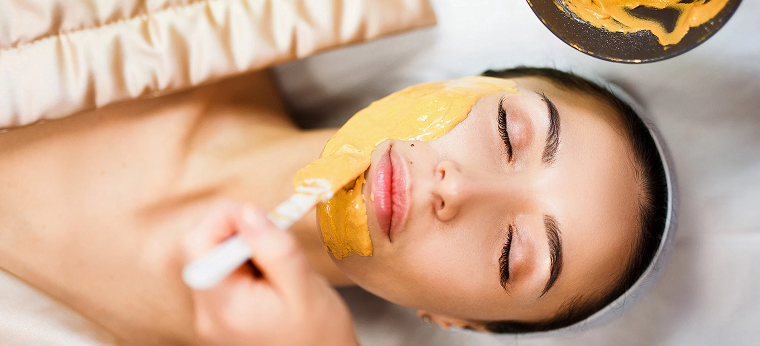
Applying Curcumin (Turmeric) Topically to Lighten Skin
The turmeric benefits for lightening the skin are numerous. Applying turmeric on the face will help treat acne and brighten skin tone, calm skin rashes, and lighten dark spots. Though not an immediate improvement, topically administered curcumin will help with discoloration or hyperpigmentation if practiced regularly over time.
Use Turmeric Masks to Topically Lighten Your Skin
A person can easily find turmeric–laced skincare products to buy, but you can also quite readily and affordably prepare a do-it-yourself treatment. A turmeric mask is the most useful way to use turmeric topically.
All turmeric masks include turmeric powder as their principal component. Purchasing a good sized bag of curcumin powder is significantly more convenient and far less costly (per amount bought) than purchasing turmeric in tablet or capsule form. It is convenient to take a scoop of powder from the resealable pouch and mix it with a liquid to make a paste you can apply to the darkened spots on the body. Be aware that since it is the curcumin that is the active part of the turmeric root, supplements are commonly labeled as “Curcumin” as opposed to “Turmeric.” A nutritional supplement could even be sold with both these names, as in “Turmeric Curcumin.” That’s the text used by Microingredients for their powder supplement.
To prepare a turmeric mask all you need to do is combine one teaspoon of turmeric powder with 1 teaspoon of fresh lemon juice. You could optionally also mix in 1 teaspoon of agave syrup or honey. Both honey and agave will help moisturize and hydrate your skin. Lemon juice carries concentrated skin bleaching attributes and it lightens your skin tone.
The pasty concoction is then patted on your face and left applied for up to 20 minutes. Rinse afterwards with tap water. Make use of this kind of mask daily for ideal results.
Take Turmeric (Curcumin) Orally for Skin Lightening
As you’ve read, curcumin powder can be used externally to lighten skin by applying powder onto your skin in the form of a mask. Alternately, curcumin can be consumed internally for the same objective — taken orally, turmeric can limit undesirable melanin formation. Basically curcumin results for skin lightening can be enjoyed by using the powdered supplement inwardly and outwardly.
Drinking Turmeric Tea Can Lighten Skin
Turmeric teas are a customary means for taking turmeric since the flavor is delicate and pleasing, and the nutritional pros are close to the eating of the whole plant in prepared solid food. The same turmeric powder you would purchase to use to make a turmeric mask is used as the basis of a turmeric tea.
Studies suggest that the basic curcumin dosage daily is something like 500 mg to 2500 mg, but studies utilizing up to 6 grams each day showed no severe side effects. Some powdered curcumin health supplements come with a small spoon that holds 1000 mg (1 gram), which makes it straightforward to brew a glass of turmeric tea. For a tea that incorporates a 1000 mg serving of curcumin, just add one scoop of curcumin powder to boiling water and let it steep for 5 to 10 minutes and then strain before drinking. To bump up the flavor, the turmeric can also be merged with additional spices like fresh ginger root.
Although turmeric tea is the most popular method to consume curcumin, you can incorporate turmeric powder in nearly any drink you choose. If your personal preference is a juice or smoothie, then simply mix a scoop or two in your preferred beverage.
When you consume turmeric is up to you. The curcumin (turmeric) does not work any differently based upon when you take it. Turmeric isn’t a stimulant, so should you like to have your drink before bed instead of in the morning to begin your day, that ought to be just fine.
